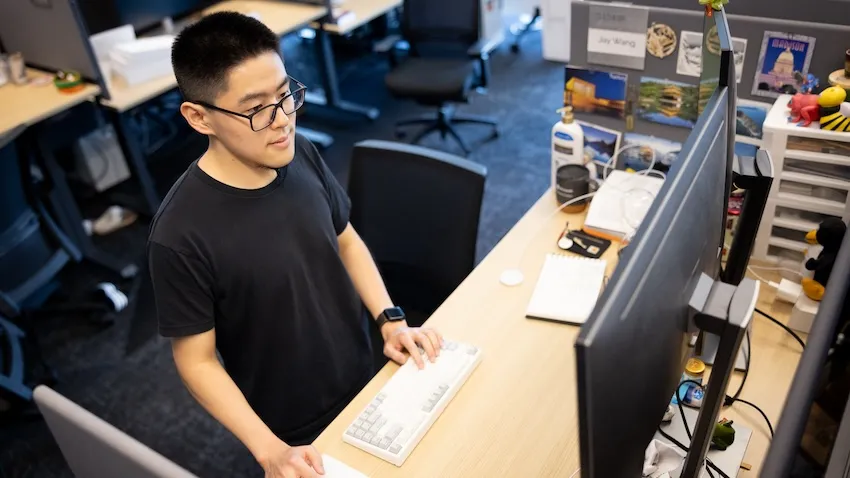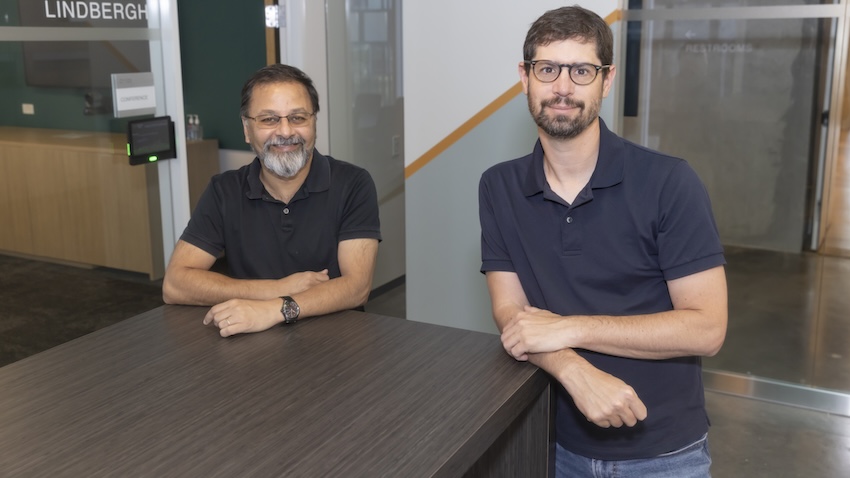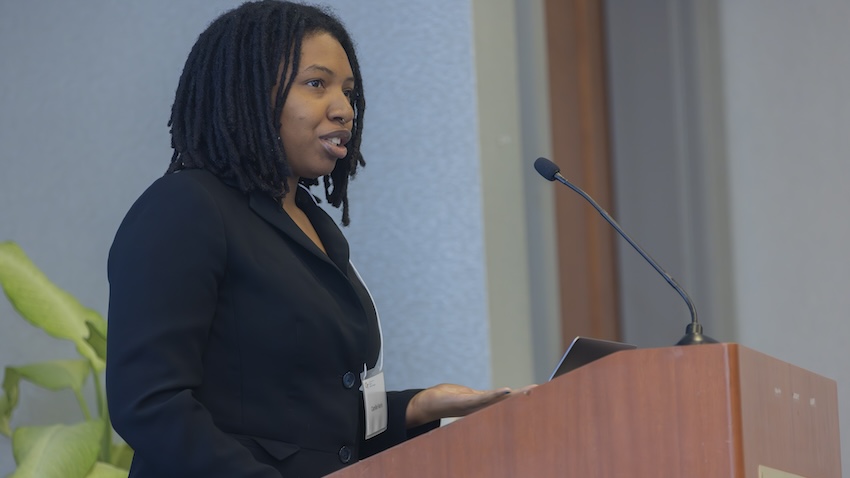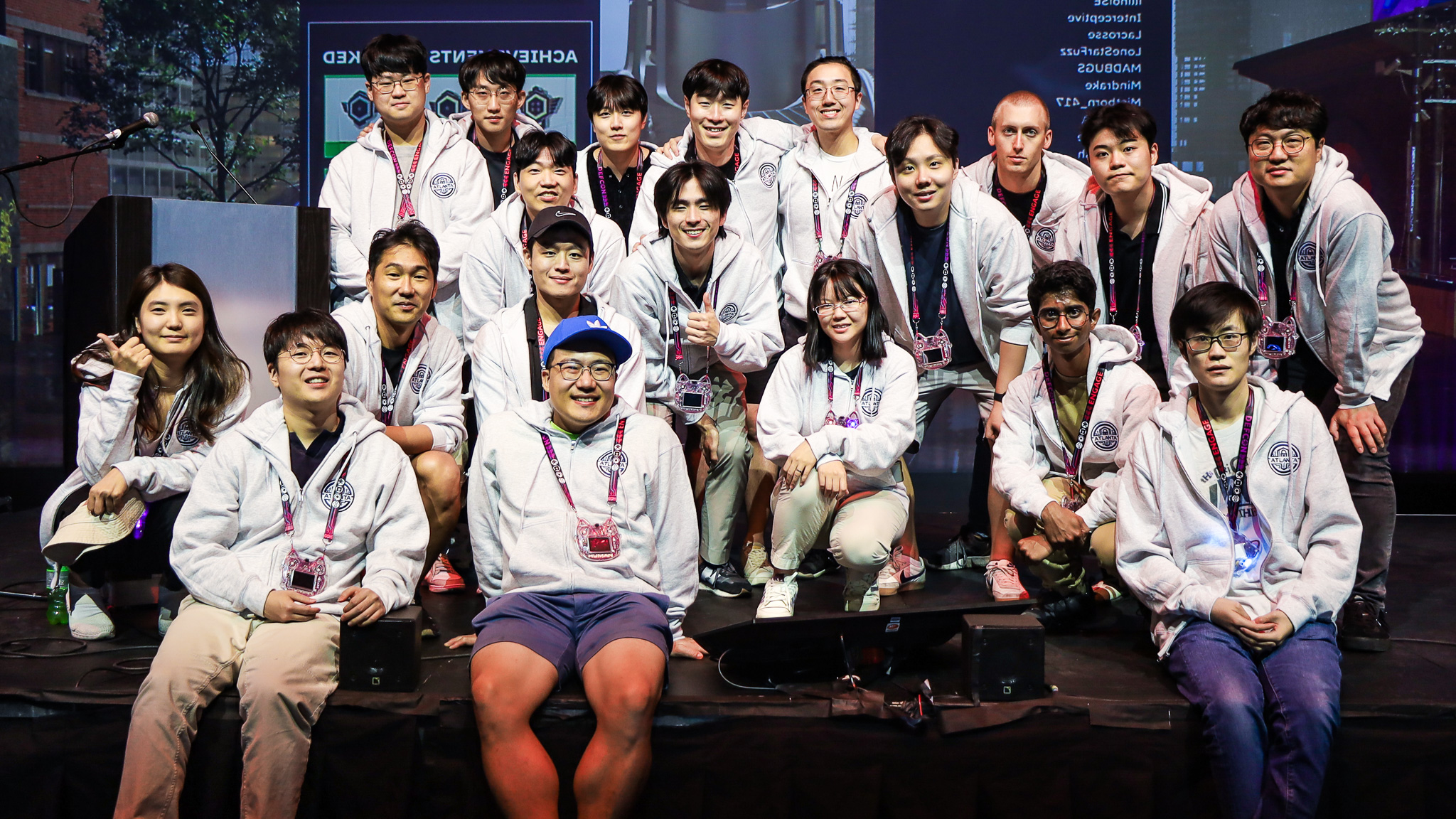May. 06, 2024
Thanks to a Georgia Tech researcher's new tool, application developers can now see potential harmful attributes in their prototypes.
Farsight is a tool designed for developers who use large language models (LLMs) to create applications powered by artificial intelligence (AI). Farsight alerts prototypers when they write LLM prompts that could be harmful and misused.
Downstream users can expect to benefit from better quality and safer products made with Farsight’s assistance. The tool’s lasting impact, though, is that it fosters responsible AI awareness by coaching developers on the proper use of LLMs.
Machine Learning Ph.D. candidate Zijie (Jay) Wang is Farsight’s lead architect. He will present the paper at the upcoming Conference on Human Factors in Computing Systems (CHI 2024). Farsight ranked in the top 5% of papers accepted to CHI 2024, earning it an honorable mention for the conference’s best paper award.
“LLMs have empowered millions of people with diverse backgrounds, including writers, doctors, and educators, to build and prototype powerful AI apps through prompting. However, many of these AI prototypers don’t have training in computer science, let alone responsible AI practices,” said Wang.
“With a growing number of AI incidents related to LLMs, it is critical to make developers aware of the potential harms associated with their AI applications.”
Wang referenced an example when two lawyers used ChatGPT to write a legal brief. A U.S. judge sanctioned the lawyers because their submitted brief contained six fictitious case citations that the LLM fabricated.
With Farsight, the group aims to improve developers’ awareness of responsible AI use. It achieves this by highlighting potential use cases, affected stakeholders, and possible harm associated with an application in the early prototyping stage.
A user study involving 42 prototypers showed that developers could better identify potential harms associated with their prompts after using Farsight. The users also found the tool more helpful and usable than existing resources.
Feedback from the study showed Farsight encouraged developers to focus on end-users and think beyond immediate harmful outcomes.
“While resources, like workshops and online videos, exist to help AI prototypers, they are often seen as tedious, and most people lack the incentive and time to use them,” said Wang.
“Our approach was to consolidate and display responsible AI resources in the same space where AI prototypers write prompts. In addition, we leverage AI to highlight relevant real-life incidents and guide users to potential harms based on their prompts.”
Farsight employs an in-situ user interface to show developers the potential negative consequences of their applications during prototyping.
Alert symbols for “neutral,” “caution,” and “warning” notify users when prompts require more attention. When a user clicks the alert symbol, an awareness sidebar expands from one side of the screen.
The sidebar shows an incident panel with actual news headlines from incidents relevant to the harmful prompt. The sidebar also has a use-case panel that helps developers imagine how different groups of people can use their applications in varying contexts.
Another key feature is the harm envisioner. This functionality takes a user’s prompt as input and assists them in envisioning potential harmful outcomes. The prompt branches into an interactive node tree that lists use cases, stakeholders, and harms, like “societal harm,” “allocative harm,” “interpersonal harm,” and more.
The novel design and insightful findings from the user study resulted in Farsight’s acceptance for presentation at CHI 2024.
CHI is considered the most prestigious conference for human-computer interaction and one of the top-ranked conferences in computer science.
CHI is affiliated with the Association for Computing Machinery. The conference takes place May 11-16 in Honolulu.
Wang worked on Farsight in Summer 2023 while interning at Google + AI Research group (PAIR).
Farsight’s co-authors from Google PAIR include Chinmay Kulkarni, Lauren Wilcox, Michael Terry, and Michael Madaio. The group possesses closer ties to Georgia Tech than just through Wang.
Terry, the current co-leader of Google PAIR, earned his Ph.D. in human-computer interaction from Georgia Tech in 2005. Madaio graduated from Tech in 2015 with a M.S. in digital media. Wilcox was a full-time faculty member in the School of Interactive Computing from 2013 to 2021 and serves in an adjunct capacity today.
Though not an author, one of Wang’s influences is his advisor, Polo Chau. Chau is an associate professor in the School of Computational Science and Engineering. His group specializes in data science, human-centered AI, and visualization research for social good.
“I think what makes Farsight interesting is its unique in-workflow and human-AI collaborative approach,” said Wang.
“Furthermore, Farsight leverages LLMs to expand prototypers’ creativity and brainstorm a wide range of use cases, stakeholders, and potential harms.”




